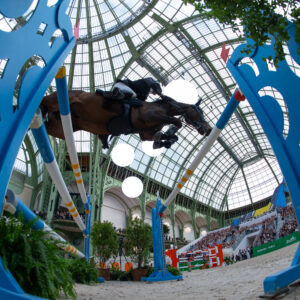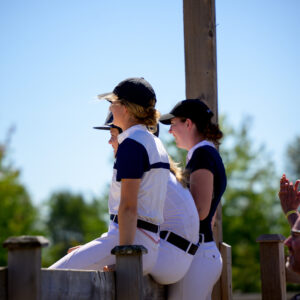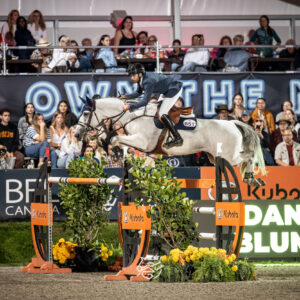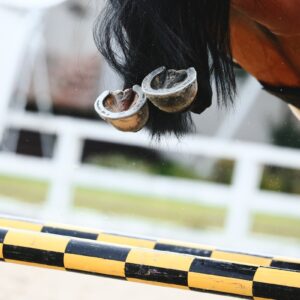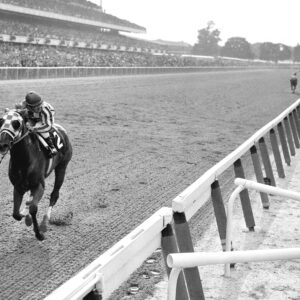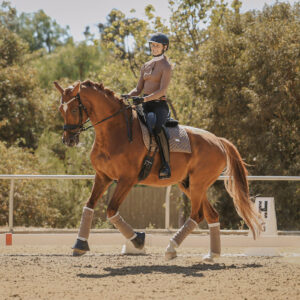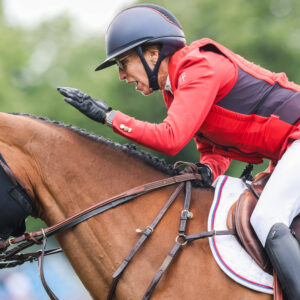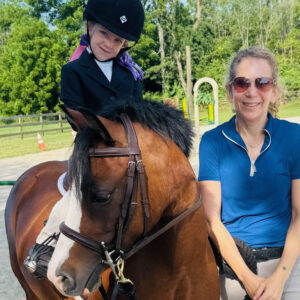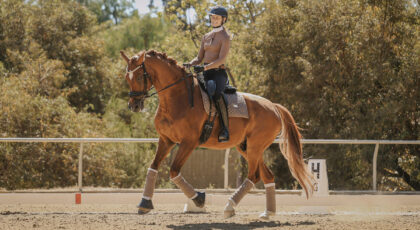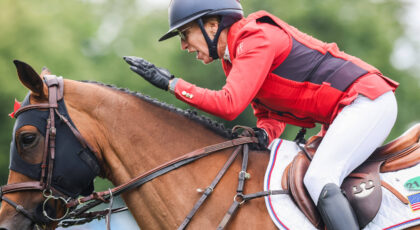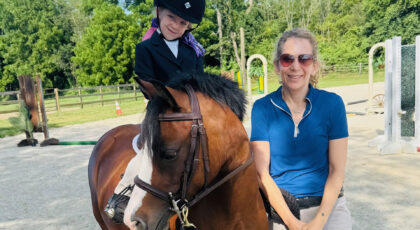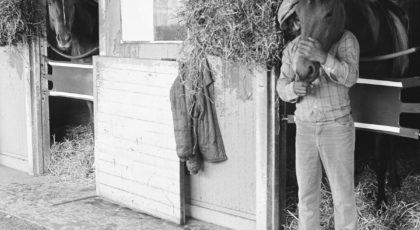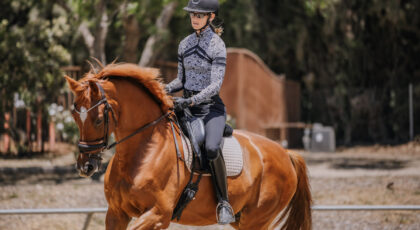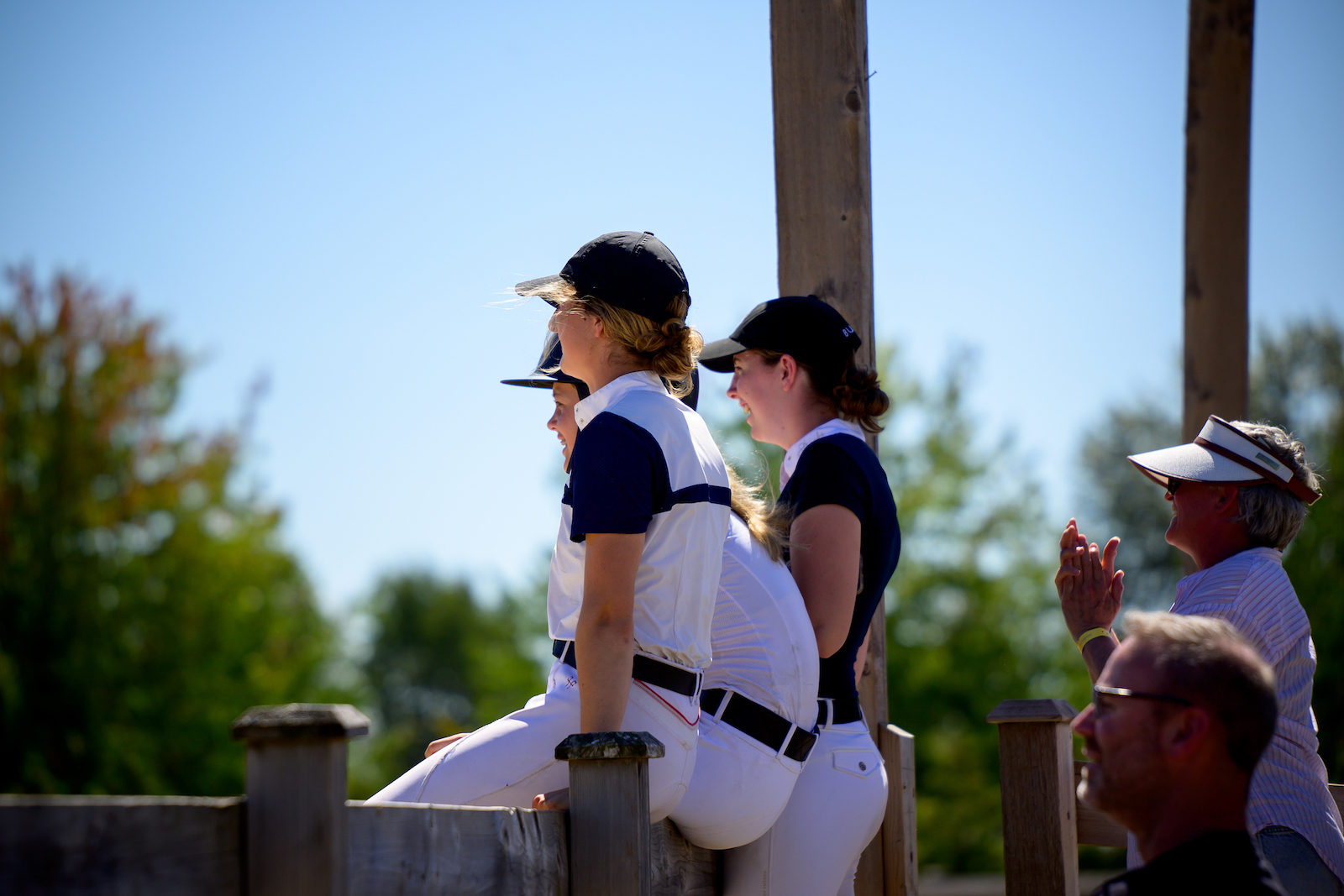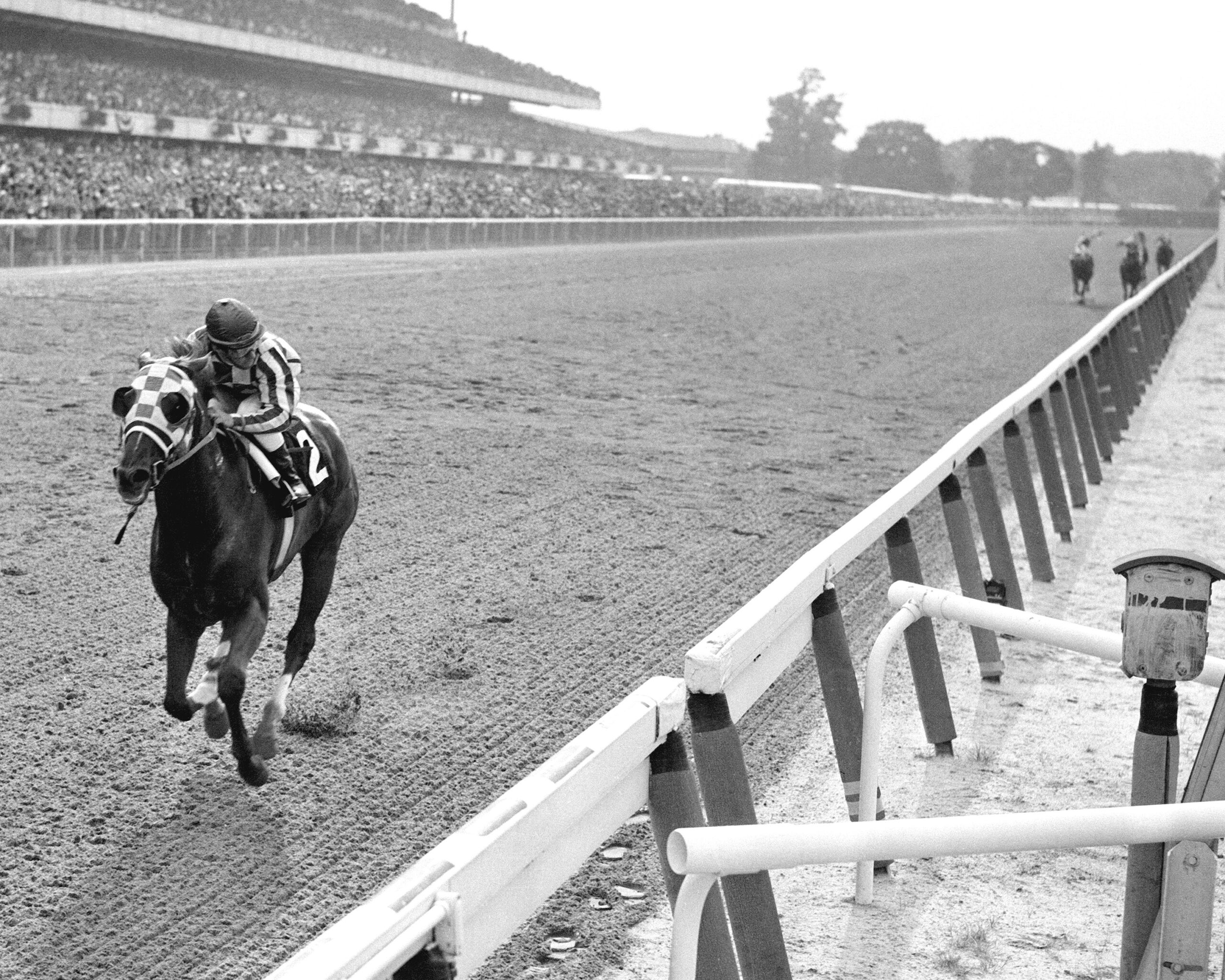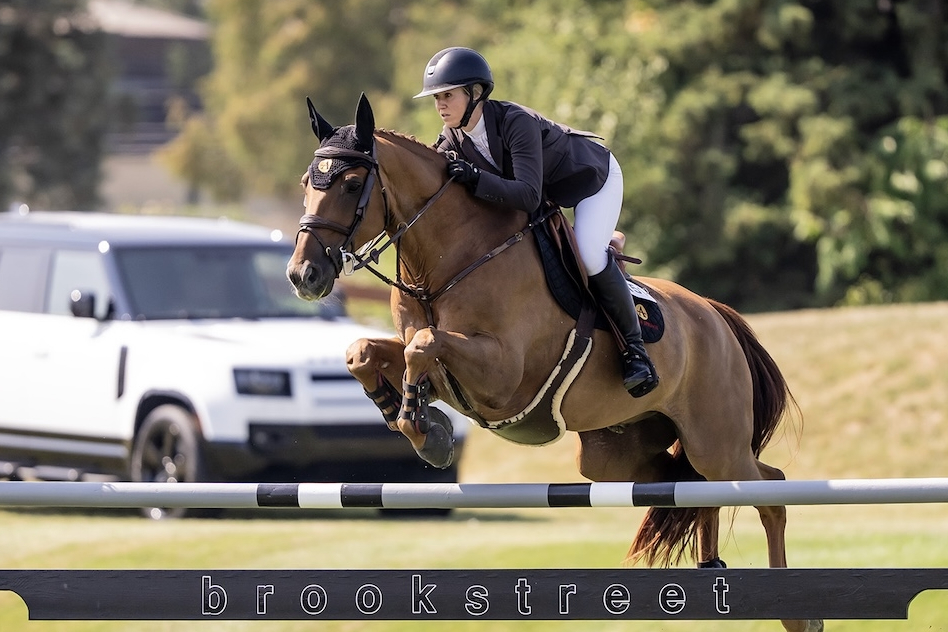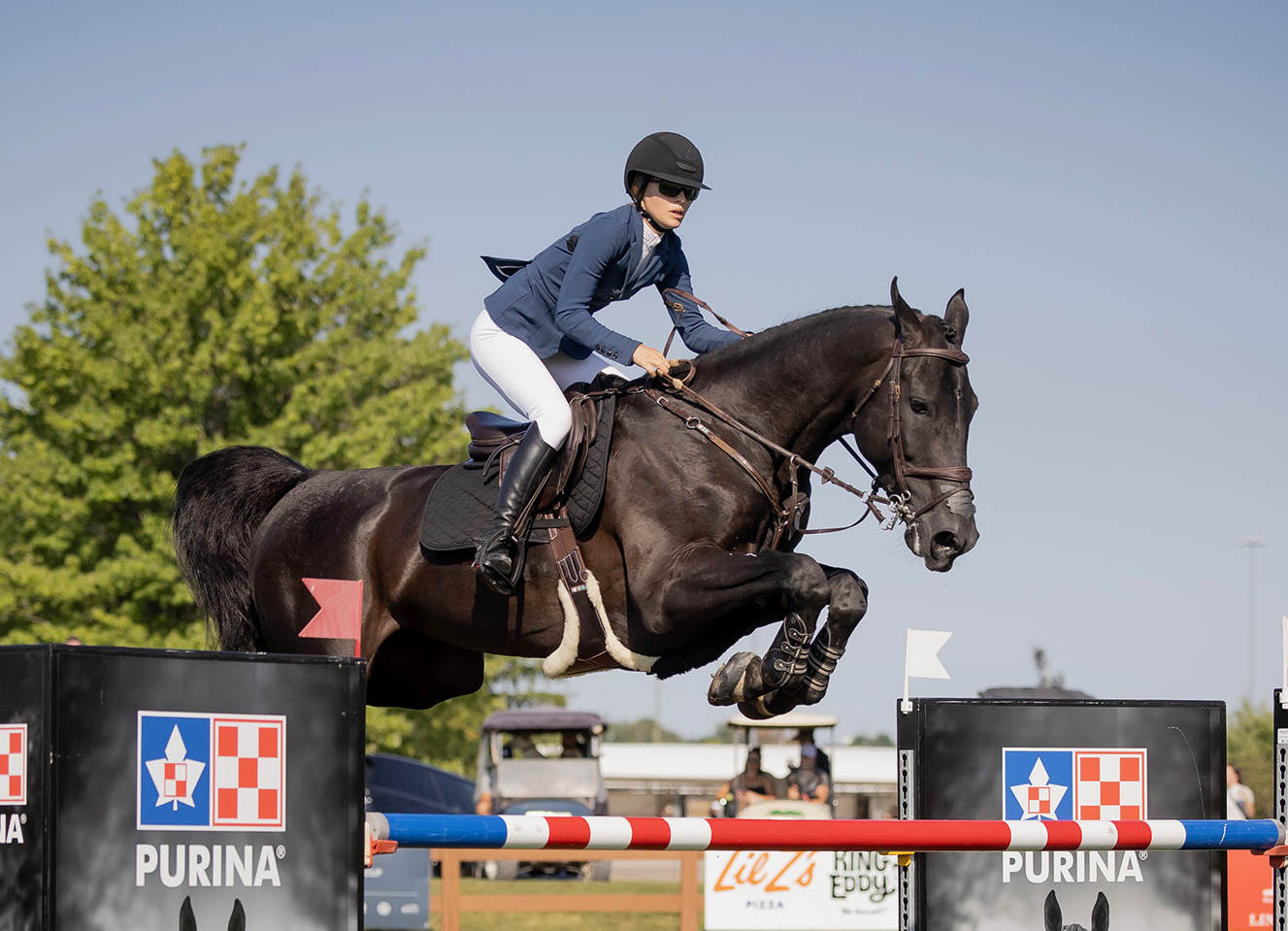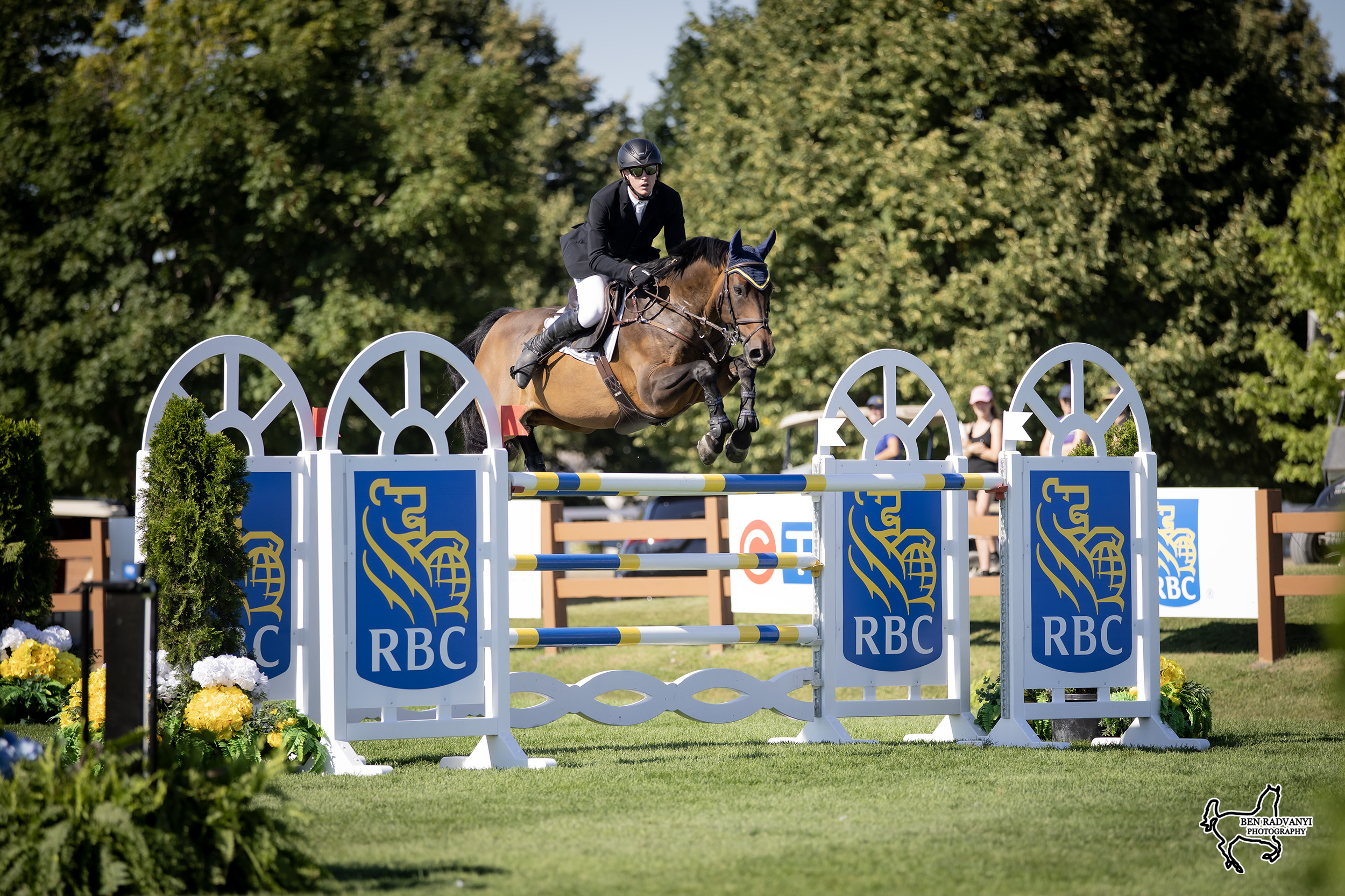This episode is sponsored by Connaway & Associates Equine Insurance Solutions Inc.
As a three-time Olympian, celebrated trainer, and founder of Bluman Equestrian, Daniel Bluman is the picture of success in the horse world. But his road to riches was missing… well, the riches. What he lacked in resources, he made up for in gumption.
The Bluman story is a family one. Daniel’s grandfather was a Holocaust survivor who settled in Colombia after being freed from Auschwitz. His father was an entrepreneur in the textile business and his mother is a psychiatrist who had to go to school and build a business not once, but twice, after she moved to the United States with her young family.
Daniel’s own love for horses stems from a childhood riding alongside his brother and his cousins, who are now his business partners.
“We started riding because it was like the way we used to play football or karate or any other sport,” he told Horse Person: MADE podcast. “Because we had ridden horses all our life we were used to being competitive from the get-go.”
That competitiveness followed Bluman to the United States where he and his family moved to a house near Wellington International. There, he was introduced to an entirely new world of competitive riding. He describes watching the competitions at Wellington as a young boy as the “thing of dreams.”
“I was 10 years old and started coming, started competing and started watching and learning,” he said. “And I started to [realize] that this was a dream that I wanted to try to live.”
While Daniel built an impressive equestrian career in America, his father continued to run the textile business from Colombia, which meant spending the majority of his time away from his sons.
“When I turned 14, we made the decision as a family that we wanted to try to be together for those last few years of middle school and high school. And we all went back to live in Colombia so that we could spend some years together,” Daniel said.
Daniel describes that time as a happy moment for his family, once again together under one roof. But it was also some of the hardest years of his life, as he had to abandon his promising riding career back in Florida.
“I had to see the dream of being one of the good riders and have a career start to slip away from my hands,” he said. The stark differences between the sport in the States, and in Colombia were jarring, he said.
“Maybe I didn’t know what was right, but I definitely knew what was wrong and what I was seeing was wrong,” he said.
Daniel returned to Florida for his senior year of high school and was disappointed to see his former competitors strides ahead of him.
“Then it began, you know, how am I going to get back in the game? How am I gonna find a way to get to a better level? And is there a possibility of becoming a professional and achieving some things? I thought I had a chance, you know, I was very optimistic about it,” he said. “When you’re young, when you’re a teenager, those are the times of life where you’re willing to bet everything because you don’t have much to bet.”
Daniel’s belief in himself was shared by his family. When his parents sold their Florida home they invested the proceeds into him.
“We downgraded the size of the house and there was a little bit of extra money from one and the other. And my parents said, okay, then you’ll take this and that could be your start.”
With that money, Daniel bought a young horse that he trained and sold for triple his investment.
“It was just an awesome horse,” he said. “Also the toughest sale I’ve ever had to do. I really didn’t want to sell the horse, but at the time I didn’t have an option, but I did promise myself that if I ever had an option again, I wouldn’t sell the horses that I could keep for me to ride.”
From there, the business grew. Daniel used that sale to buy a truck and a trailer, and put one foot in front of the other on the path towards his dreams. All the while knowing there were no guarantees.
“I always tell people when you’re about to go into a difficult journey, you also need to know what’s the worst that can happen and you need to be okay if you end up in the worst case scenario,” he said.
Instead of the worst case scenario, Daniel found Sansha, the horse he would ride all the way to an Olympic debut.
“In less than a year, I was already top five in the Pan-American Games, I qualified to the Olympic Games. Six months later, I had won already the first five-star Grand Prix of my life,” he said. “And next thing I know, I was in London, jumping the Olympic finals with Sancha. You know, she was nine and I was 22. So really crazy. Everything happened really fast.”
Along the way, Daniel founded Bluman Equestrian with his brother and two cousins. The business now has four locations in Florida, New York, Belgium and Colombia. Daniel also expanded to New York’s Blue Star Equestrian and Fairfield County Hunt Club in Westport, Connecticut, where he delivers premium riding access to what he saw as an underserved community—amateurs wanting to take lessons and enjoy riding without necessarily aiming for the top levels of competition. In an effort to give back, Daniel and his wife, Arielle, work in partnership with the non-profit, Urin Therapeutic Center in Israel to provide therapeutic riding for people living in the Gaza envelope area living with PTSD.
“We’ve done a lot of great things. But the truth is that for the majority of the time, I never really had money,” he said. “All the money was always been completely spent on horses and investing in my own sport. I was lucky. You know, in some of those decisions that I made, if they would have gone the wrong way, I would have ended up with nothing and I would’ve had to start again.”
Today, Daniel isn’t just building a business around himself—he’s building infrastructure to support other professionals who want to stay in the sport. To learn more about his philosophy, and how he keeps the peace in a family-run business, tune in to this episode of Horse Person: MADE podcast.
Horse Person: MADE explores the stories behind the brands, businesses, and visionaries shaping the horse world. This isn’t just about entrepreneurship—it’s about the real, human journey: the risks, the resilience, the detours, and the drive it takes to build something meaningful in this industry.
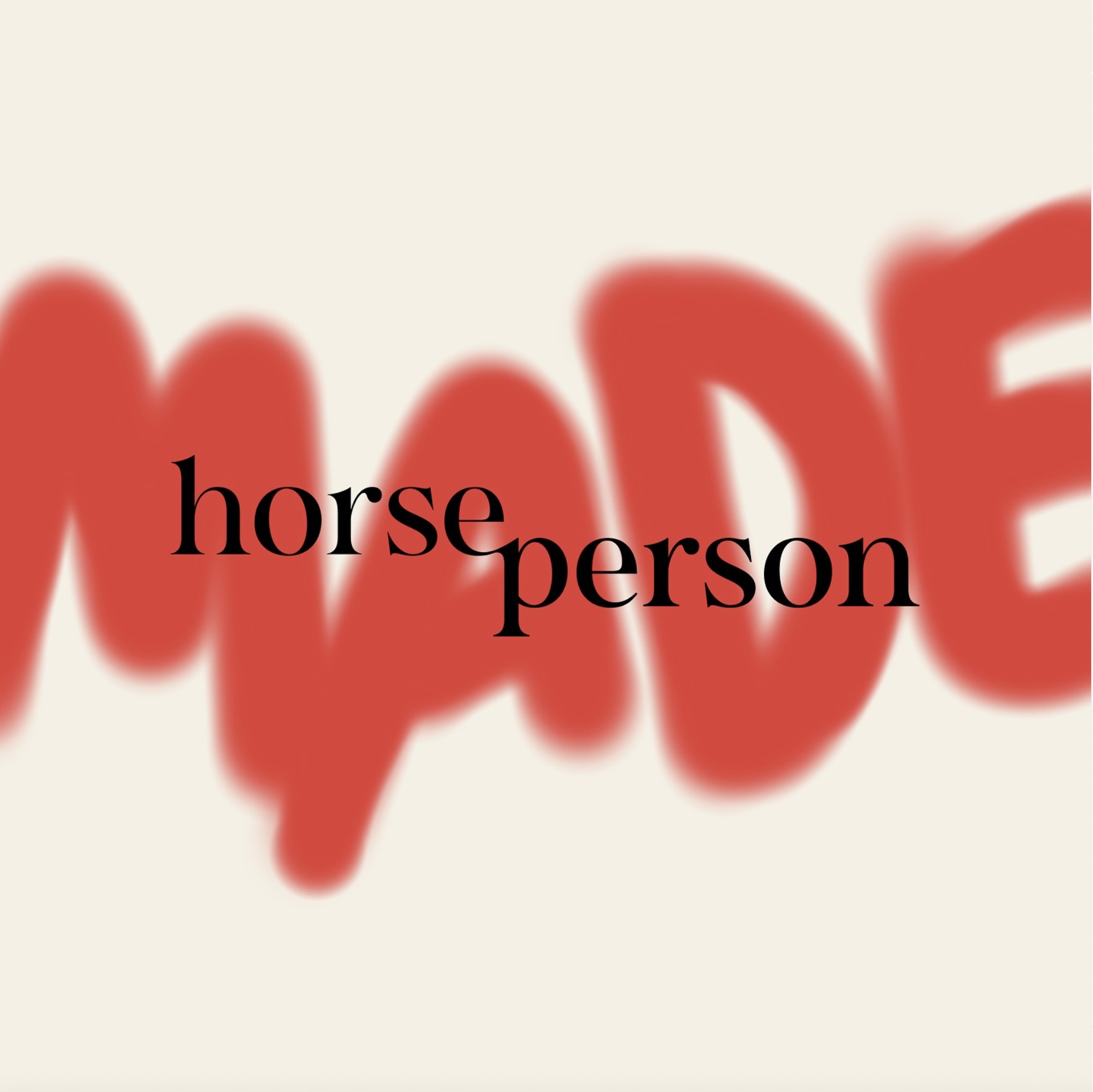

 August 1, 2025
August 1, 2025 






